Gipuzkoa accelerates energy transition with innovative battery projects in Eskuzaitzeta
Gipuzkoa is positioning itself at the forefront of the circular economy and energy transition by signing two strategic agreements for the implementation of innovative projects in Eskuzaitzeta.
With a total investment of 400,000 euros, the Department of Sustainability of the Gipuzkoa Provincial Council and CIDETEC, in collaboration with the NATURKLIMA Foundation, will launch a material characterization laboratory for batteries and a state-of-the-art energy microgrid in the Eskuzaitzeta industrial area.
Jose Ignacio Asensio: “The Eskuzaitzeta Energy Microgrid and the Battery Material Characterization Laboratory significantly accelerate the energy transition in Gipuzkoa, creating a new niche for quality employment and leading an emerging industry around battery recycling”.
Javier Rodriguez: “The proliferation of batteries challenges us to manage them effectively. CIDETEC will leverage its knowledge and experience to make Gipuzkoa a leader in battery recycling”.
This morning, José Ignacio Asensio, Deputy for Sustainability and President of Naturklima, and Javier Rodríguez, General Director of Cidetec, signed two collaboration agreements between the Department of Sustainability of the Gipuzkoa Provincial Council, Naturklima, and Cidetec, amounting to 390,000 euros.
The signing of these agreements highlights the commitment to innovation, sustainability, and decarbonization, marking a decisive step in Gipuzkoa’s comprehensive strategy to create a new industrial ecosystem centered on the emerging battery sector. José Ignacio Asensio, Deputy for Sustainability and President of Naturklima, stated: “The expected enormous growth in battery evolution not only highlights the opportunity for growth and employment in a new sector but also underscores the urgent need to address the end-of-life of these batteries and thereby accelerate the main challenge of renewable energies: storage.”
According to official data from the FHG ISI Cell Production Database, battery production in Europe will surge in the next decade, increasing from 120 GWh in 2024 to over 750 GWh by 2030, accumulating a total of 1 TWh throughout the 2020-2030 decade. This vast expansion presents a crucial challenge: sustainably managing batteries at the end of their lifecycle. Therefore, repair, remanufacture, reuse, and recycling are essential concepts to address this issue.
For this reason, the Department of Sustainability of the Gipuzkoa Provincial Council, together with NATURKLIMA and CIDETEC, launched the ZIRKULAR BAT Forum in 2022, a hub that already brings together twenty companies aiming to create synergies and generate opportunities around batteries.
“ZIRKULAR BAT is just the beginning of a mid-term strategy that will allow us to have an industrial and technological ecosystem in Gipuzkoa around batteries, enabling us to respond to future energy and environmental challenges,” emphasized Deputy Asensio. “The signing of these two agreements allows us to launch two new projects that will significantly accelerate the energy transition in Gipuzkoa, create a new niche of quality employment, and lead an emerging industry around battery recycling.”
The two projects agreed upon are:
A Laboratory for Characterizing Recycled Materials from Used Batteries: This will be located in Cidetec’s new facilities in the Eskuzaitzeta industrial area. The laboratory will advance the research and development of battery recycling technologies, optimizing the reuse of valuable resources, marking a significant step towards creating a pilot battery recycling plant by 2027. This space will be equipped with devices provided by the agreement and additional equipment from CIDETEC, coinciding with the inauguration of CIDETEC Energy Storage’s new facilities in Eskuzaitzeta.
Implementation of a State-of-the-Art Energy Microgrid in the Eskuzaitzeta Business Environment: This microgrid will utilize second-life battery energy storage systems and integrate distributed renewable generation systems, waste heat, electric vehicles, and advanced storage systems. The initiative aims to establish an energy community promoting the energy autonomy of Eskuzaitzeta industries and integrate an energy microgrid combining photovoltaic panels, waste heat generation, electric vehicles, and second-life batteries to optimize the energy activities of businesses in the area. This project is developed as a Living Lab, a living laboratory to co-generate knowledge about the network’s operation and co-create solutions to optimize systems. “These projects not only create a new niche of quality employment but also position Gipuzkoa as an international benchmark in the circular economy of batteries and renewable energies,” said Deputy Asensio.









